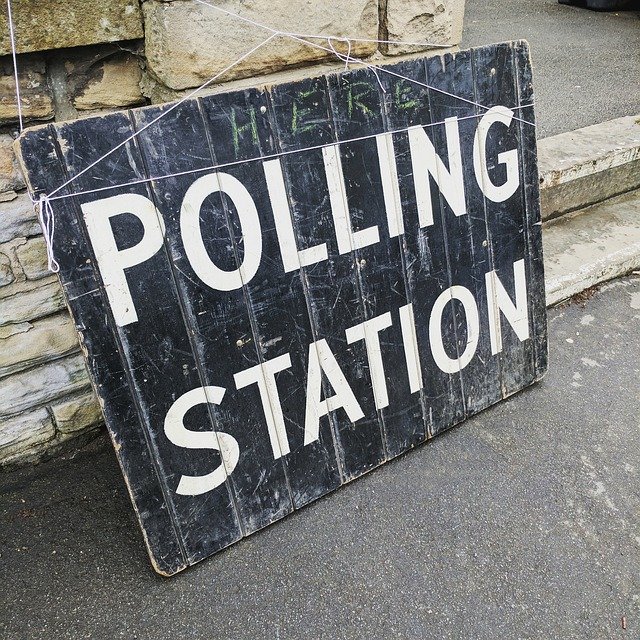
Our election system is in a perilous state as never before. As a former election official, what I’m witnessing now was unimaginable a few years ago. Back in the late 1960s, as a newly elected Clark County Auditor, I conducted elections that involved registering voters, setting up polling stations, tabulating ballots, and confirming the election results.
While the ballot positions were mostly partisan, conducting the elections was rigorously non-partisan. There were collegial meetings with the Republican and Democratic county chairpersons to enlist volunteers to greet and verify voters who showed up at the polling stations and to devote long hours to counting the ballots.
There was bipartisan agreement in the need to protect elections and the right to vote. Yet in some respects, voting was more restrictive back then. There were no drop-off boxes or same-day registration, and also no mail-in or absentee ballots except for those in military service.
The 2020 presidential election had a surprisingly high voter turnout despite the COVID-19 pandemic. It was the largest voter turnout in this century with 17 million more people voting than in 2016. State and local officials went all out to make voting easier, with some states such as Washington mailing ballots to all voters, plus expanding drop-off boxes.
Many of the initiatives to make voting easier were quickly scaled back after Biden won the presidency. There were false allegations of election fraud. The partisan drumbeat led some state legislatures to enact restrictive laws. In 2021, 19 states passed 34 such laws, restricting access to casting ballots in future elections. Republican lawmakers claimed that such actions were needed to prevent voter fraud and to safeguard our elections. Yet federal and state agencies, including President Trump’s Attorney General Bill Barr, found no evidence of problems with the 2020 election. Subsequently, 50-plus federal and state court rulings dismissed such claims.
So what’s the problem? It comes down to politics. Political operatives on both sides think that a higher voter turnout inevitably results in more Democratic victories. Maybe. After all, the high 2020 turnout resulted in Democratic losses at the state, local, and Congressional levels.
Another voting issue is about how ballots are tabulated. The Trump brigade’s attacks on the 2020 election targeted Dominion Voting Systems, a supplier of voting equipment whose hardware and software are now being used in 28 states. Dominion products allowed the casting of votes electronically as well as optical scanning devices to tabulate paper ballots. The conspiracy theories alleged that Dominion was an international cabal to steal the election from President Trump. All this was highlighted by Fox News and Newsmax, whose reporting led to libel lawsuits, after which these outlets rescinded such allegations.
How ballots are counted is a legitimate issue. The traditional hand-counting of paper ballots had poll volunteers working late into the evening, which delayed releasing results. Clark County and many others also had the so-called “lever machines” tabulating ballots. Dating back to 1895, these hulking 875-pound machines each cost $5,000, plus the enormous expense for storing and delivering them to polling stations.
Then I learned about a punch-card device, known as Votomatic. This new computerized alternative with a $185 price tag would require legislation to authorize an untested new voting system. It took two years to convince lawmakers in Olympia to allow Clark County to be the first in the nation to use this new device for computer tabulation of ballots with the necessary safeguards. The Votomatic quickly spread to other Washington counties and nationwide but got caught up in a highly publicized glitch in Florida that resulted in a Federal law that banned pre-scored punch card ballots.
Congress by a bipartisan vote prohibited punch card voting, so Congress can act. How goes the current effort to pass legislation that provides safeguards to prevent some states from rigging election laws to guarantee more partisan outcomes?
The “For the People Act,” first introduced in 2010, is something of a Democrat freight train loaded with 791 pages of so-called election reforms, including making election day a national holiday, campaign financing reform, and automatic voter registration. Despite relentless efforts by Biden and Democratic leaders in Congress, their ambitious stockpile of reforms never got to the president’s desk. The same fate awaited the John Lewis Voting Rights Advancement Act.
Alas, partisanship still reigns. While state and local governments are responsible for overseeing our elections, the U.S. government definitely has responsibility given the federal positions (president, Congress) on the ballot. Yet Congress seems paralyzed. What Republicans are doing in state legislatures to undermine voting is countered by the Democrats’ too-sweeping For the People Act. So far, that leaves no room for finding common ground.
Discover more from Post Alley
Subscribe to get the latest posts sent to your email.

Loved hearing how you brought the Votomatic to Clark County and the Evergreen State.
Great insights, Don!
In response to Mort Kondrake’s recent opinion piece, I wrote:
Before the pandemic we had thousands of little old white-haired ladies who would meticulously supervise the integrity of the process and the vote count in each and every polling place and municipality nationwide. Unfortunately, the coronavirus scared them all off and the count and tally was left to others. In order to regain the sanctity of our election processes we need to bring back the little old white-haired ladies, in force.